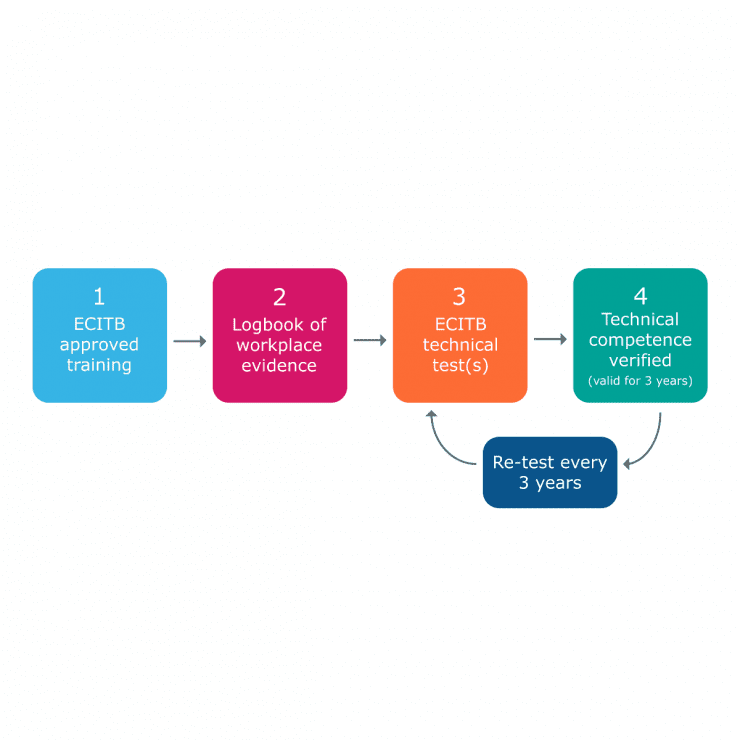Each technical test examines a specific activity that is part of an engineering construction discipline. The tests consist of two elements – a knowledge test and a practical test:
The knowledge test is online and assesses theoretical knowledge of the technical discipline or skill – the pass mark is 80% and it must be successfully completed before the candidate can move on to the practical element.
The practical test is a specified technical task and the candidate is briefed so they understand exactly what is being asked of them. The candidate carries out the task under continuous observation by an ECITB-approved examiner. All parts of the practical test must be completed to the required standard to achieve a pass.

The 4-stage model to technical competence
This model is available for the training and assessment for specific technical activities critical to engineering construction. These are:
- Mechanical joint integrity
- Small bore tubing
- Appointed persons moving loads
- Wind turbine statutory inspection
Workers must undertake the following four stages:
- ECITB-approved classroom and practical training
- complete a logbook to provide evidence of completing practical activities in the workplace to meet Employers’ requirements
- successfully complete the relevant ECITB technical test(s)
- be reassessed by an ECITB technical test every three years to demonstrate continuing technical competence.
Connected Competence
Connected Competence is an industry-driven initiative to improve the safety, mobility and transferability of workers by assuring a base level of technical competence through assessment against an agreed common standard.
Developed with some of the UK’s largest contracting companies, each one has committed to working together to use standardised training and testing based on the ECITB’s technical tests.
Connected Competence standardises competence by using a set of agreed technical tests to assess a worker’s technical competence across a discipline. For each test successfully completed, a digital badge is awarded, valid for 3-4 years.
Assessing competence in engineering construction
The Health and Safety Executive’s (HSE) definition of competence: “The ability to undertake responsibilities and perform activities to a recognised standard on a regular basis. It is a combination of skills, experience, and knowledge.”
- For employers to be compliant with the HSE they should assess worker competence against a recognised standard on a regular basis. Employers doing this in isolation may satisfy that requirement, but it is an inefficient way of onboarding workers who have already had their competence assessed.
- Employers who do not assess against a recognised standard on a regular basis are at risk of being non-compliant. Regular assessment against a recognised standard can be achieved using ECITB technical tests.
Sign up for updates
Your information will be used to subscribe you to our e-newsletter.
For more information, please see our Privacy Notice.


